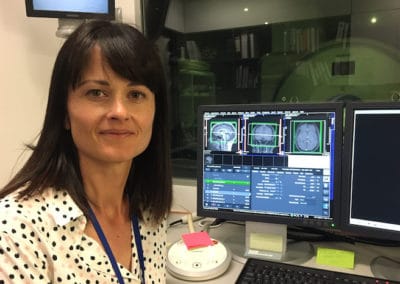While New Zealand’s Covid-19 lockdown has ended, it has left behind a significant impact on our society. For many of New Zealand’s older population, as the most at-risk group for Covid-19 infection, the lockdown created significant uncertainty, anxiety and a deterioration in mental and physical health as they found themselves cut off from loved ones, familiar routines and support systems.
Dr Gary Cheung is a researcher working with the interRAI Home Care program, working to assess the wellbeing of older people within New Zealand. interRAI is a comprehensive standardised geriatric assessment that is used for all older people assessed for publicly funded home support services and aged residential care.
New Zealand has a state-of-the-art system of collecting, storing and reporting of interRAI data, which can be used to inform us about the physical, psychological and social wellbeing of our older people at an individual-, regional- and national- level. This information can then be used to improve services to better meet the needs of our older people.
There has been a call for urgent action to mitigate the physical and mental health consequences of COVID-19 self-isolation in older adults. Levels 2-4 advised high-risk people to remain at home (e.g. those over 70 or those with other existing medical conditions). Without this rapid translation of routinely collected interRAI data, the health and psychosocial well-being of vulnerable older New Zealanders will be left un-monitored.
The rates of suicide among older adults spiked during the period of the 2003 SARS epidemic in Hong Kong. In New Zealand, suicide rates of older men aged 85 years and above between 2011 and 2019 were the second highest amongst all age groups. Physical illness and depression are well-recognised risk factors for late-life suicidal behaviour. interRAI includes information on self-rated health and depressed mood, which are two of the indicators we will report on. Many of the evidence based late-life suicide prevention programmes target better screening and treatment of depression.
If COVID-19 indeed has had an impact on the health and psychosocial well-being of our older generation, the New Zealand public health and social services and non-government organizations can ramp up their resources to address and minimize these problems at a national and/or community level as soon as our quarterly interRAI indicators become available. These rapid responses could prevent further deterioration of the health of older New Zealanders, reduce their suffering and ease pressure on New Zealand health services.Finally, learning from this project can be shared with other countries that use interRAI, enabling them to prepare vital health and social services for similar epidemic/pandemic in the future.
– Dr Gary Cheung is an Old Age Psychiatrist and Senior Lecturer in Psychiatry at the University of Auckland. He is a Principal Investigator at Brain Research New Zealand.




